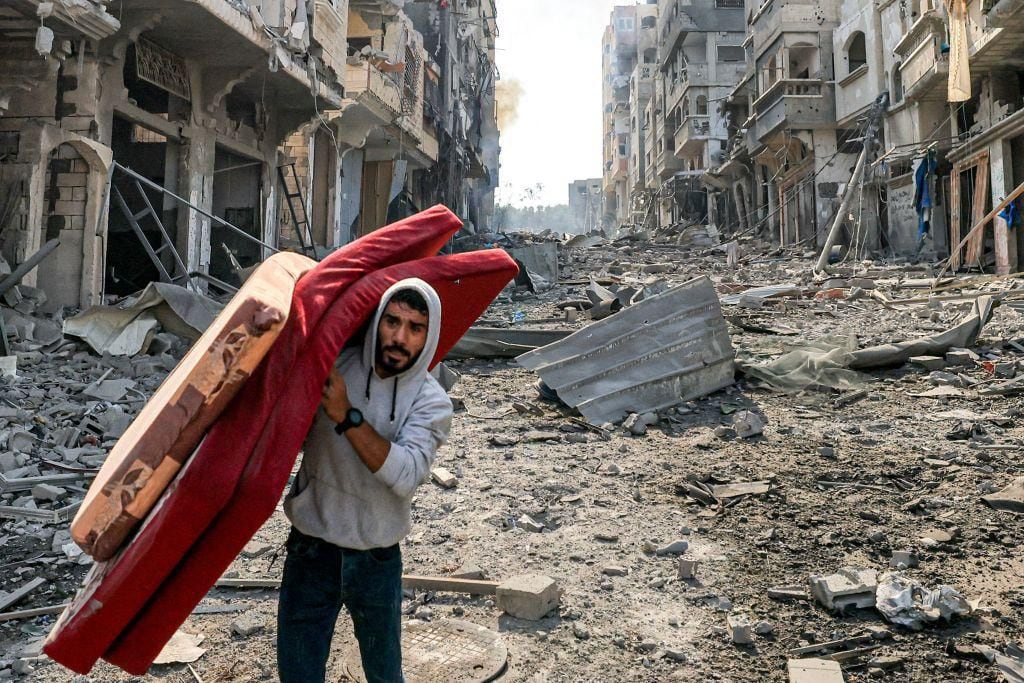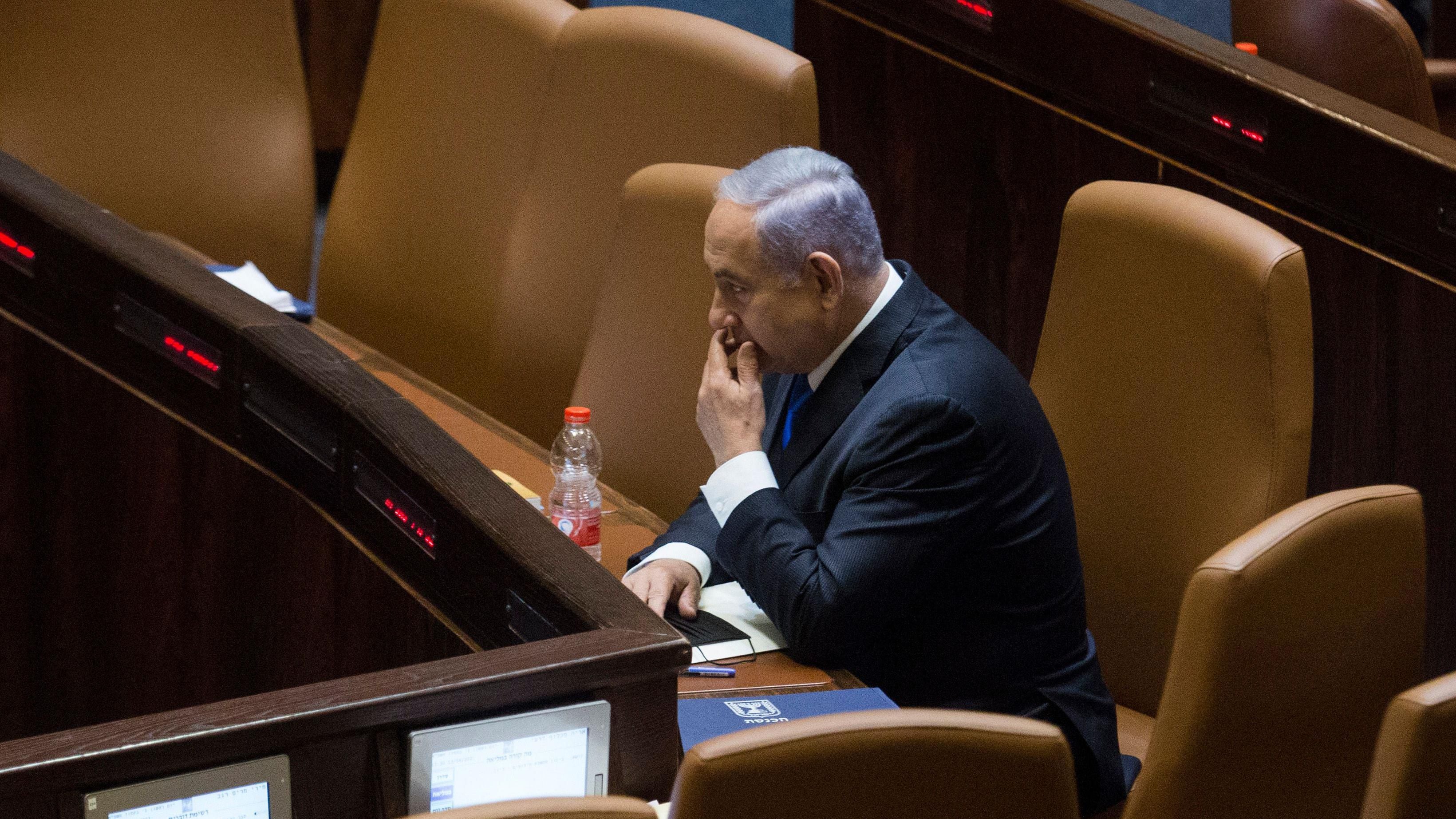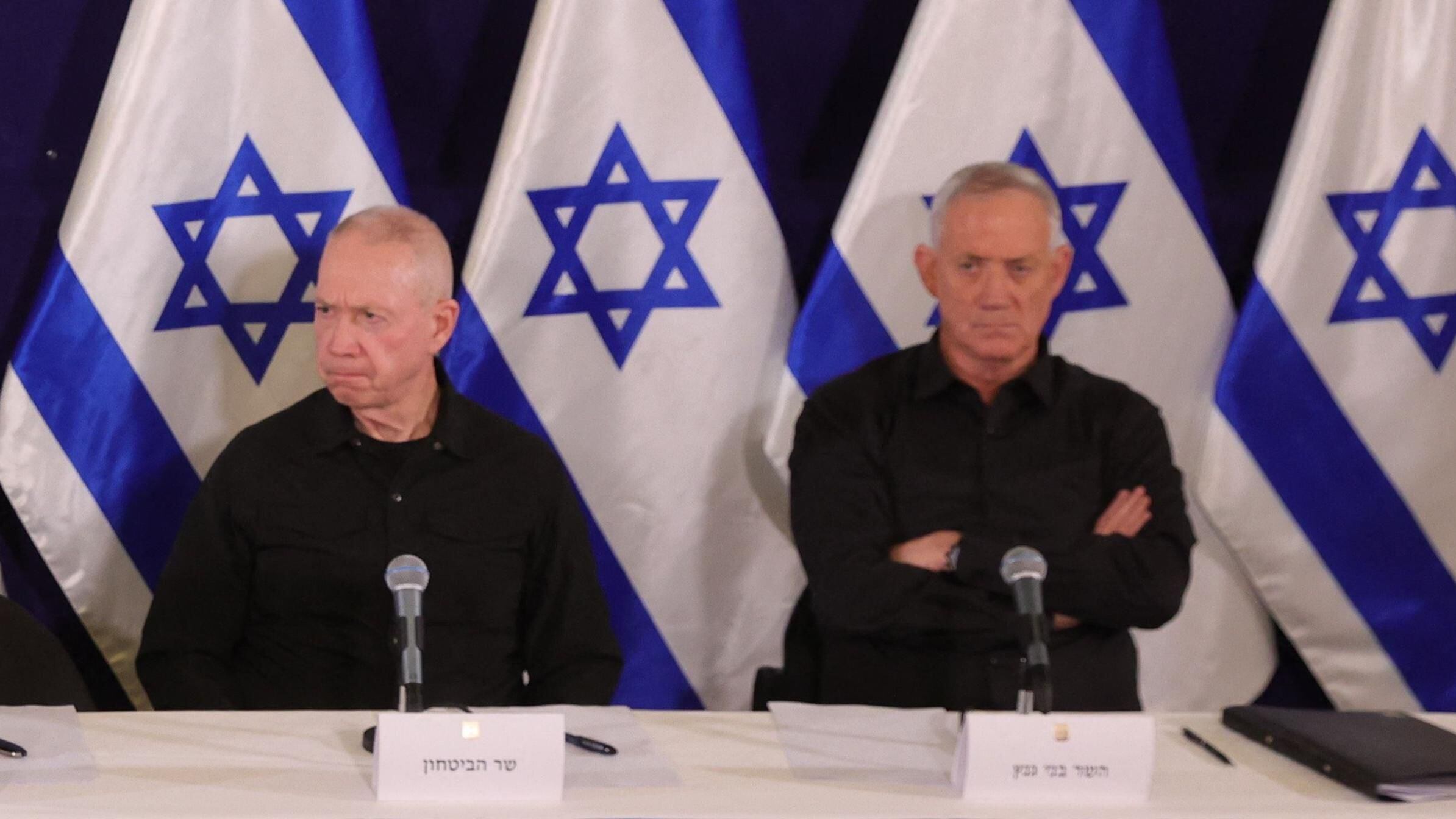More than seven months after the October 7th attacks that triggered the war in Link, global public opinion appears to have changed. The initial solidarity he obtained Israel After the Hamas attack, it gave rise to widespread protests and harsh criticism, even from traditionally allied countries.
On the ground, most of the Israeli hostages kidnapped by Hamas remain missing, while the military leaders of this Palestinian Islamic group – such as Yahya Sinwar – have gone underground to avoid the strong military offensive ordered by the government of the Israeli prime minister. , Benjamin Netanyahu, on the Strip.
LOOK: Who is Karim Khan and why the ICC prosecutor who sought arrest warrants against Netanyahu and Hamas leaders is controversial
Above ground, however, more than a million Palestinians have been displaced and more than 35,000 have died, according to Gaza health authorities, as a result of an Israeli offensive that has reduced much of the Strip to rubble.
This led – among other things – to protests at universities and on the streets of several cities around the world; the recognition of the Palestinian state by European nations such as Spain, Norway and Ireland, and legal proceedings before the International Court of Justice (ICJ) and the International Criminal Court (ICC), in which Israel is accused of genocide as well as war crimes and crimes against humanity.
Regarding the direction of the war in Gaza, BBC Mundo spoke with Alon Pinkas, who was chief of staff to four Israeli foreign ministers and participated in the Israeli-Palestinian dialogues that followed the Camp David summit in 2000.
Pinkas, who was also Israel’s ambassador and consul general in New York, is one of the voices critical of the way the war has been conducted and, in this conversation, warns that if Netanyahu maintains his current policies, his country will become increasingly isolated. .
Israel received support from much of the world after Hamas killed 1,200 people and kidnapped more than 200 during the October 7 attack. However, seven months later this support appears to have disappeared. Many see Israel more as an aggressor than a victim. Had happened?
Well, two things happened.
The first was the disproportionate military retaliation carried out by Israel. I can understand the reasons, I can even justify the feeling, but the disproportionality continued for too long and before we knew it – 3 or 4 weeks after October 7th – the world was exposed to scenes of destruction, carnage and civilian deaths, indiscriminate attacks on Gaza, followed by a major Israeli ground incursion into northern Gaza.
And suddenly people started to forget what caused this and what Hamas did on October 7th, and what they saw every day was the Israeli destruction of Gaza. That’s what changed public opinion.
The second thing that happened was that, as time went on, people were reminded of the conditions that existed even before October 7th – what people consider to be a relentless Israeli occupation of the West Bank and a siege of Gaza – and people, especially the most politically involved people, saw this as further proof and justification that Israel is a colonial power that totally ignores Palestinian lives and hopes.
So you add the two together and you get a huge shift in global public opinion.
The Israeli government disagrees with the idea that it is waging this war disproportionately. Do you consider this a disproportionate war?
Well, I think the issue could have been handled more intelligently, and that is the essence of the American criticism of Israel: although the war itself is a just war and the use of military means is justified, the scope, scale and the duration have been excessive.
If Israel had managed, after two, maybe three months, to completely destroy Hamas while trying to minimize – I don’t even say succeed, but at least seriously and sincerely trying to minimize – civilian deaths, then I think the world would be critical but tolerant of what happened.
The truth is that it has been almost eight months and there is no end in sight. So yes, in terms of how Israel has employed military force, I agree with that.

South Africa has taken Israel to the ICJ, Turkey has suspended bilateral trade, the UN General Assembly has pushed for recognition of a Palestinian state, there are protests in many cities and universities against Israel, and even the US government has paused the delivery of some weapons. And now, the ICC prosecutor has requested an arrest warrant for Netanyahu and his defense minister, Yoav Gallant.
Is Israel at risk of becoming a pariah state?
That depends on Israel, it depends on whether or not there is a change in policy. As long as this government is in power and Netanyahu is prime minister, I don’t see how politics will change.
I don’t think South Africa will succeed at the ICJ because they argue that this is genocide and to prove that you have to prove that there was an intention to commit genocide and that will be extraordinarily difficult.
However, if we take all the issues we have raised and connect all the dots, then a bleak picture emerges of a country that is not yet a pariah, but is increasingly isolated and isolated.
You recently said that Israel was becoming a pariah in slow motion…
Correct. If the policies persist, if this political trajectory persists, unfortunately this is the path we are following.

What are the factors that contribute to Israel’s isolation?
Well, politics.
The fact that Israel has not and, in fact, has refused to present a post-war policy for Gaza; the fact that Israel said it would not stay in Gaza, but the fact that it would stay in Gaza; the fact that Israel is not following US advice.
You add all these things up and you see the process of – as you call it – becoming an outcast in slow motion.
Well, that was a quote from him. Netanyahu said Israel will continue the war even if it has to do it alone…
This is nonsense. You can’t do this alone. It’s him being arrogant, but at the same time incapable.
He knows this cannot be done and says this for internal consumption in Israel.
The only reasons he says this are for political reasons.
Are you worried about the long-term damage to Israel’s image in the world?
Yes a lot. I think the US Secretary of State – Antony Blinken – has warned Israel that it is causing generational damage to its own reputation and brand.

You mentioned the future of Gaza. What is your opinion on the apparent division within the Israeli war cabinet over the future of Gaza? Benny Gantz, a member of that cabinet, set a deadline for Netanyahu to present a plan…
Well no. All he asked was that Netanyahu come up with a plan. Therefore, it is conceivable that Netanyahu could come up with a plan that he has no intention of executing and that would satisfy Gantz.
I see no real divisions within the war cabinet at the moment.
But Defense Minister Yoav Gallant said the lack of a plan was hurting Israel and he opposes Israel’s long-term military rule over Gaza…
That’s true, but that’s after the war and the war isn’t even over yet, so I can’t say that this reflects some kind of division that would cause political problems.
He could do so if Gantz and Gallant worked together and presented Netanyahu with a serious ultimatum. It is not a speech to the public, but a serious ultimatum: we will see through the plan or we will call your bluff.
So it can be useful and substantial, until then it’s all political arrogance.
Some people point to the difficulties in getting humanitarian aid to Gaza as a sign of Israel’s lack of empathy for Gaza’s civilian population. What would I say to them?
There was a lack of empathy for the devastation and pain that Israel suffered on October 7th.
It was only after great American pressure that Israel allowed this humanitarian aid to arrive, and I think they know that Israel cannot afford to continue to be seen as a country that impedes humanitarian aid.
The fact that Netanyahu does not appear to accept a Palestinian Authority governing Gaza, the current operation in Rafah and the fact that his government does not appear capable or willing to put an end to aggression against Palestinians in the West Bank are elements used by Israel’s critics to say that Israel wants to conquer all territories “from the river to the sea”…
This is nonsense. Public opinion is against this, it cannot be implemented in practice and what we hear from right-wing politicians is simply nonsense.
That won’t happen. I understand critics using this as an anti-Israel issue, but that simply won’t happen.

Many experts and people who consider themselves friends of Israel in the United States and elsewhere have called from the beginning for Israel to avoid this type of war. They argued that this would play into Hamas’ hands. Were there really no alternatives to the way Israel fought this war?
Of course, there were many alternatives.
Threaten an invasion, do it quickly, and first secure a deal to release the hostages. There were several other ways to do this.
By the way, start in the south, where Rafah is, and not in the north, because if Hamas is concentrated in Rafah, why then invade the north and cause a humanitarian crisis?
There were many military operational ways to conduct this war differently.
Some analysts say this war has further alienated Israel and the Palestinians and that it will take generations to heal the wounds, but at the same time there is a strong push from the United States and other stakeholders for a two-state solution.
How close or far do you think we will be to that after this war? Will any of these things make the two-state solution harder or easier?
That’s a great question, but it’s hypothetical. It depends on how the war ends.
At first glance we are more separated, but we also realize that the status quo it cannot be sustained, so we are indeed closer, but not with these governments.
Source: Elcomercio
I am Jack Morton and I work in 24 News Recorder. I mostly cover world news and I have also authored 24 news recorder. I find this work highly interesting and it allows me to keep up with current events happening around the world.

:quality(75)/cloudfront-us-east-1.images.arcpublishing.com/elcomercio/2X53YZUTUBFMRGGWRPTOIOR7QQ.jpg)





